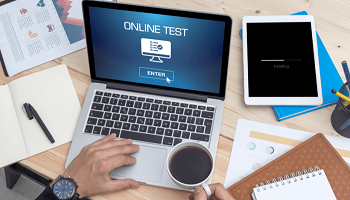GATE Instrumentation Engineering
Career Avenues recent GATE Instrumentation ranks: 10, 13, 24, 28, 49, 53…
Our Courses

GATE Instrumentation Free Trial
Start Free Trial of all Career Avenues courses. See samples of video lectures, study material and tests. And experince our award winning learning platform.
Free Trial

GATE Instrumentation Engg Printed Study Material
Check Scholarship Coupon Details and Course Duration before purchase. Covers Aptitude, Maths and GATE Instrumentation Engg syllabus. Includes Online Test Series, Mocks and Past GATE questions.
Starts at Rs. 7000

GATE Instrumentation Engg Online Study Material
Check Scholarship Coupon Details and Course Duration before purchase. Covers Aptitude, Maths and GATE Instrumentation Engg syllabus. Includes Online Test Series, Mocks and Past GATE questions.
Starts at Rs. 1000

GATE Instrumentation Online Test Series
Check Scholarship Coupon Details and Course Duration before purchase. Best GATE Instrumentation Engg Test Series in India. 60 Instrumentation Engg, 50 Aptitude, 30 Maths Tests. 5 Mocks held in Dec and Jan.
Starts at Rs. 500

GATE Instrumentation Engg Video Lectures
Check Scholarship Coupon Details and Course Duration before purchase. Detailed videos covering Aptitude, Maths and Instrumentation Engg. Includes Online Test Series and Mocks.
Starts at Rs. 1000
Our Faculty
Download Our Books
You can enrol through this website or through our app using upi, wallet payments, net-banking, debit and credit cards of most banks. If you still have a difficulty, please call or whatsapp on 9930406349 and we will assist you. After enrolment, please fill enrollment form here:
Each of us requires a different kind of study program based upon our style/preference of studying. Normally, all students take our study material and test series. Many also take video lectures as it helps them clear concepts. A lot depends upon time available to prepare, current stage of preparation, etc. If you are still unsure, please contact us.
Yes, there may be few scholarships available for students from top colleges, students with good grades, students from EWS and for students whose parents are from teaching or defence services. Pls contact us on 9930406349 via whatsapp with details of course you wish to join and scholarship category needed, along with relevant documents.
As a registered Career Avenues student, you can ask your doubts here and our faculty will get back to you.
Typically 5-6 months are required, but some students need a longer time frame based on other commitments. College students start preparation 12-18 months before GATE to have more time to practise questions as they may have semester exams as well.
We suggest about 800 to 1200 hours of preparation time overall. This can be divided into 3-4 months or 12-18 months, based on your schedule.
Preparing for the GATE Instrumentation Engineering exam requires a well-planned strategy. Here are some steps you can follow to effectively prepare for the exam:
Understand the Exam Pattern: Familiarize yourself with the GATE Instrumentation Engineering exam pattern, including the marking scheme, number of questions, and duration of the exam. This will help you structure your preparation accordingly.
Syllabus Analysis: Thoroughly go through the GATE Instrumentation Engineering syllabus to understand the topics and subtopics that are covered. Create a list of subjects and prioritize them based on their weightage in the exam.
Gather Study Materials: Collect the recommended books, study guides, and reference materials for each subject. You can refer to standard textbooks, online resources, and GATE preparation books specific to Instrumentation Engineering.
Create a Study Plan: Develop a study plan that suits your schedule and allows for dedicated time for each subject. Divide your study sessions into manageable chunks and allocate specific time for theory, problem-solving, and revision. Ensure that you cover all the topics within the set timeframe.
Focus on Conceptual Understanding: Instrumentation Engineering requires a strong foundation of concepts. Spend sufficient time understanding the fundamental principles, theories, and formulas for each subject. Clear your doubts and seek clarification whenever necessary.
Practice Previous Year Question Papers: Solve previous year GATE question papers for Instrumentation Engineering to familiarize yourself with the exam pattern, question types, and time management. This will also help you identify your strengths and weaknesses in different subjects.
Mock Tests and Online Practice: Take regular mock tests and online practice quizzes to assess your preparation level and improve your speed and accuracy. Analyze your performance, identify areas for improvement, and work on enhancing your problem-solving skills.
Revision and Notes: Prepare concise and effective notes while studying each subject. These notes will come in handy during revision, allowing you to quickly revise important concepts and formulas. Regularly revise the topics to reinforce your understanding and retention.
Time Management and Exam Strategy: Practice time management techniques while solving mock tests and previous year papers. Develop an exam strategy to efficiently tackle different question types and allocate time based on question weightage.
Stay Calm and Take Care of Yourself: Maintaining a positive mindset, staying focused, and managing stress is crucial during exam preparation. Take regular breaks, engage in physical activity, eat a balanced diet, and get enough sleep to keep your mind and body healthy.
- Being a GATE aspirant, it is very important that you first know what is the syllabus for GATE Instrumentation (IN) Examination before you start preparation.
- Keep handy the updated copy of GATE Instrumentation (IN) Examination syllabus.
- Go through the complete and updated syllabus, highlight important subjects and topics based on Past GATE Instrumentation (IN) Papers and Weightage plus your understanding of particular subject or topic.
- Keep tracking and prioritising your preparation-to-do list and the syllabus for the GATE Instrumentation (IN) examination.
Section I: Engineering Mathematics
- Linear Algebra:
Matrix algebra, systems of linear equations, Eigen values and Eigen vectors.
- Calculus:
Mean value theorems, theorems of integral calculus, partial derivatives, maxima and minima, multiple integrals, Fourier series, vector identities, line, surface and volume integrals, Stokes, Gauss and Greens theorems.
- Differential equations:
First order equation (linear and nonlinear), higher order linear differential equations with constant coefficients, method of variation of parameters, Cauchys and Eulers equations, initial and boundary value problems, solution of partial differential equations: variable separable method.
- Analysis of complex variables:
Analytic functions, Cauchys integral theorem and integral formula, Taylors and Laurents series, residue theorem, solution of integrals.
- Probability and Statistics:
Sampling theorems, conditional probability, mean, median, mode and standard deviation, random variables, discrete and continuous distributions: normal, Poisson and binomial distributions.
- Numerical Methods:
Matrix inversion, solutions of non-linear algebraic equations, iterative methods for solving differential equations, numerical integration, regression and correlation analysis.
Section II: Electrical Circuits
- Topics – Part A:
Voltage and current sources: independent, dependent, ideal and practical; v-i relationships of resistor, inductor, mutual inductor and capacitor; transient analysis of RLC circuits with dc excitation.
- Topics – Part B:
Kirchoffs laws, mesh and nodal analysis, superposition, Thevenin, Norton, maximum power transfer and reciprocity theorems.
- Topics – Part C:
Peak-, average- and rms values of ac quantities; apparent-, active- and reactive powers; phasor analysis, impedance and admittance; series and parallel resonance, locus diagrams, realization of basic filters with R, L and C elements.
- Topics – Part D:
One-port and two-port networks, driving point impedance and admittance, open-, and short circuit parameters.
Section III: Signals and Systems
- Topics:
Periodic, aperiodic and impulse signals; Laplace, Fourier and z-transforms; transfer function, frequency response of first and second order linear time invariant systems, impulse response of systems; convolution, correlation. Discrete time system: impulse response, frequency response, pulse transfer function; DFT and FFT; basics of IIR and FIR filters.
Section IV: Control Systems
- Topics:
Feedback principles, signal flow graphs, transient response, steady-state-errors, Bode plot, phase and gain margins, Routh and Nyquist criteria, root loci, design of lead, lag and lead-lag compensators, state-space representation of systems; time-delay systems; mechanical, hydraulic and pneumatic system components, synchro pair, servo and stepper motors, servo valves; on-off, P, P-I, P-I-D, cascade, feedforward, and ratio controllers.
Section V: Analog Electronics
- Topics:
Characteristics and applications of diode, Zener diode, BJT and MOSFET; small signal analysis of transistor circuits, feedback amplifiers. Characteristics of operational amplifiers; applications of opamps: difference amplifier, adder, subtractor, integrator, differentiator, instrumentation amplifier, precision rectifier, active filters and other circuits. Oscillators, signal generators, voltage controlled oscillators and phase locked loop.
Section VI: Digital Electronics
- Topics:
Combinational logic circuits, minimization of Boolean functions. IC families: TTL and CMOS. Arithmetic circuits, comparators, Schmitt trigger, multi-vibrators, sequential circuits, flip-flops, shift registers, timers and counters; sample-and-hold circuit, multiplexer, analog-to-digital (successive approximation, integrating, flash and sigma-delta) and digital-to-analog converters (weighted R, R-2R ladder and current steering logic). Characteristics of ADC and DAC (resolution, quantization, significant bits, conversion/settling time); basics of number systems, 8-bit microprocessor and microcontroller: applications, memory and input-output interfacing; basics of data acquisition systems.
Section VII: Measurements
- Topics:
SI units, systematic and random errors in measurement, expression of uncertainty – accuracy and precision index, propagation of errors. PMMC, MI and dynamometer type instruments; dc potentiometer; bridges for measurement of R, L and C, Q-meter. Measurement of voltage, current and power in single and three phase circuits; ac and dc current probes; true rms meters, voltage and current scaling, instrument transformers, timer/counter, time, phase and frequency measurements, digital voltmeter, digital multimeter; oscilloscope, shielding and grounding.
Section VIII: Sensors and Industrial Instrumentation
- Topics:
Resistive-, capacitive-, inductive-, piezoelectric-, Hall effect sensors and associated signal conditioning circuits; transducers for industrial instrumentation: displacement (linear and angular), velocity, acceleration, force, torque, vibration, shock, pressure (including low pressure), flow (differential pressure, variable area, electromagnetic, ultrasonic, turbine and open channel flow meters) temperature (thermocouple, bolometer, RTD (3/4 wire), thermistor, pyrometer and semiconductor); liquid level, pH, conductivity and viscosity measurement.
Section IX: Communication and Optical Instrumentation
- Topics:
Amplitude- and frequency modulation and demodulation; Shannon’s sampling theorem, pulse code modulation; frequency and time division multiplexing, amplitude-, phase-, frequency-, pulse shift keying for digital modulation; optical sources and detectors: LED, laser, photo-diode, light dependent resistor and their characteristics; interferometer: applications in metrology; basics of fiber optic sensing.
Here are some recommended books for GATE Instrumentation (IN) preparation:
Network:
- “Fundamental of Electric Circuits” by Charles K. Alexander, Mathew N.O. Sadiku
- “Engineering Circuit Analysis” by William H. Hayt & Jack E. Kemmerly
Signals & Systems:
- “Signals & Systems” by Alan V. Oppenheim
- “Signals & Systems” by Tarun Kumar Rawat
Process Control:
- “Process Control Instrumentation Technology” by Curtis D. Johnson
Analog Circuits:
- “Microelectronic Circuits” by Adel S. Sedra, Kenneth Carless Smith
- “Integrated Electronics” by Millman & Halkias
Electronic Devices:
- “Semiconductor Physics & Devices” by Naresh
- “Integrated Electronics Solid State Devices” by Ben G. Streetman, Sanjay Banerjee
Transducers:
- “Measurement Systems: Application Design” by Doebeli
- “Principles of Measurement Systems” by John Bentley
Measurements:
- “A Course in Electrical & Electronic Measurements & Instrumentation” by A. K. Sawhney, Puneet Sawhney
- “Electronic Instrumentation & Measurement Technique” by William David Cooper
Digital Circuits:
- “Digital Systems: Principles & Applications” by Tocci
- “Digital Logic & Computer Design” by M. Morris Mano
Communication:
- “Communication System” by Simon S. Haykin
- “Principles of Communication System” by Taub
Control Systems:
- “Control Systems Engineering” by I.J. Nagrath
- “Automatic Control Systems” by B.C. Kuo
Please note that while these books are recommended, you can also consider using focused GATE Instrumentation (IN) study material that covers all the concepts and practice questions specifically tailored for the exam.
























